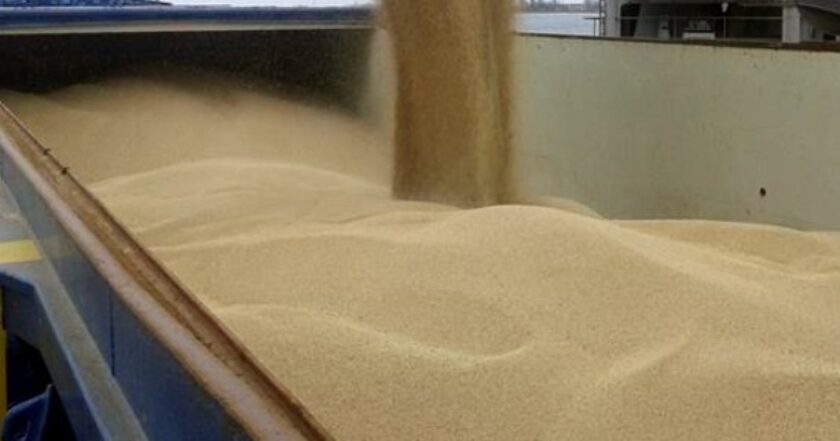Lithuania urges EU to use Baltic ports to export Ukrainian grain

Lithuania urged the EU to use Baltic ports to export Ukrainian grain after Russia withdrew from the grain deal, says Gabrielius Landsbergis, the state's foreign minister.
The Baltic states appealed to the European Commission to use the Baltic Sea route to resolve the problems that arose after Russia's refusal to continue the Black Sea Grain Initiative.
The ministers underlined that the transport route between Ukraine and the Baltic states may serve "as a viable and trusted alternative route" for the shipment of Ukrainian grain.
The infrastructure of the Baltic states (ports, railways, and road transport) can serve as a viable and trusted alternative route for transit of Ukrainian products, including grain. The railway and road infrastructure, and the five seaports of the Baltic States, in particular (Tallinn, Riga, Ventspils, Liepāja, and Klaipėda), have a combined annual capacity of 25 million tons for grain alone, the statement says.
Lithuania has proposed ways to quickly increase the volume of grain transported from Ukraine to the Baltic Sea, but negotiations with the European Commission and Poland are not going smoothly, Lithuanian Transport and Communications Minister Marius Skuodis said earlier.
Since July 19, Russia has been conducting airstrikes on grain terminals in Ukrainian ports. The infrastructure of international and Ukrainian traders and carriers was damaged. Russia is threatening to attack civilian vessels traveling to Ukrainian ports.
Lithuanian President Gitanas Nausėda said in Brussels last week that alternative grain export routes would be looked for in the Baltic Sea.


















































